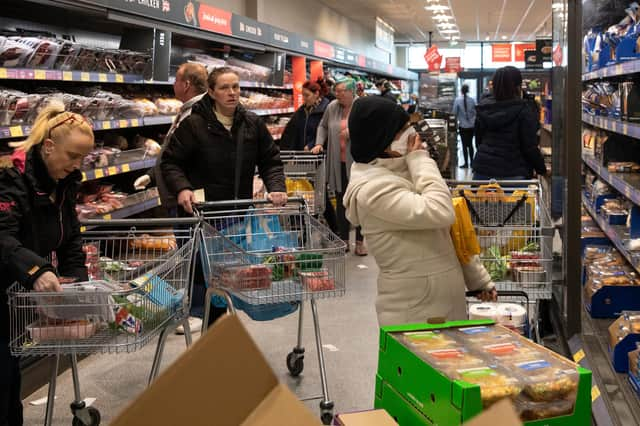UK cost of living crisis shows need to make sure work pays – Scotsman comment


And while this will hit everyone in society, we will not all experience the pain to anything like the same degree.
As ever, the poorest households will find it harder to deal with the financial pressure because of the fine margins on which they live, which has led to food banks becoming commonplace in one of the world's richest countries.
Advertisement
Hide AdAdvertisement
Hide AdThe loss of discretionary spending is one thing, it is quite another – to use a now grimly familiar phrase – to make a choice between heating and eating.
So it seems obvious that government should focus their immediate efforts on helping the poorest in society.
But such is the scale and speed of these cost increases that people who are just about getting by may soon find out what it means to be a member of the ‘working poor’.
In 2012, the median annual pay for a full-time job in Scotland was £25,960 – half of workers earned more, half less – and by 2020, this figure had risen to £31,605. That looks like a decent rise but actually, it barely kept pace with inflation.
Many hard-working families trying to build a better life for themselves have been feeling the squeeze and things are about to get even tougher.
So, after addressing the immediate effects of rising living costs on the poorest, MPs and MSPs should look for longer term solutions that ensure everyone can get a fair day’s pay for a fair day’s work. People in full-time employment should not ordinarily need benefits, which can act as a state subsidy that enables, or encourages, businesses to pay low wages.
Many of the factors behind the current crisis are global, but the UK needs to find ways to make our economy and people’s livelihoods more resilient to such shocks, so that when hard times come, we are all better able to deal with them without having to make the hardest of choices.
A message from the Editor:
Thank you for reading this article. We're more reliant on your support than ever as the shift in consumer habits brought about by coronavirus impacts our advertisers.
If you haven't already, please consider supporting our trusted, fact-checked journalism by taking out a digital subscription.
Comments
Want to join the conversation? Please or to comment on this article.
